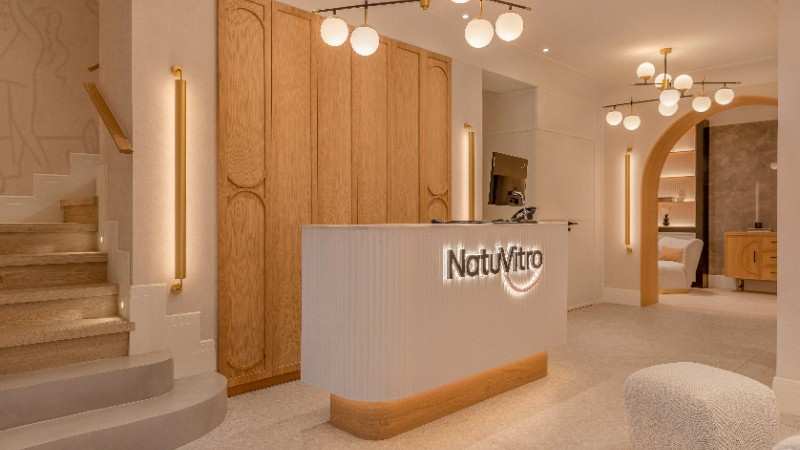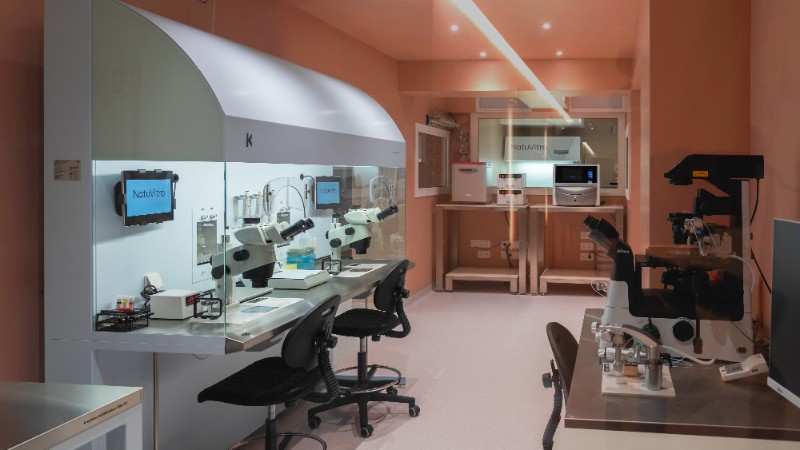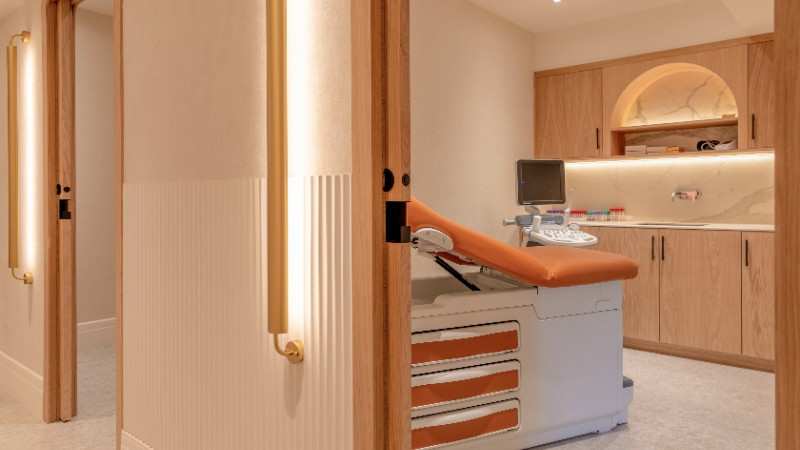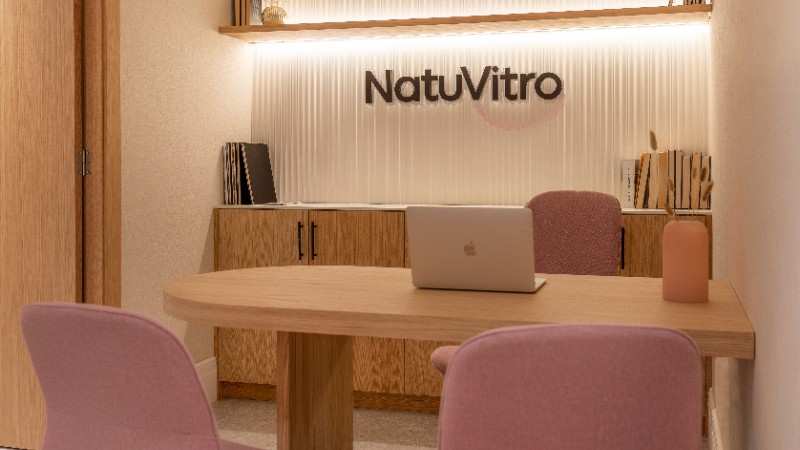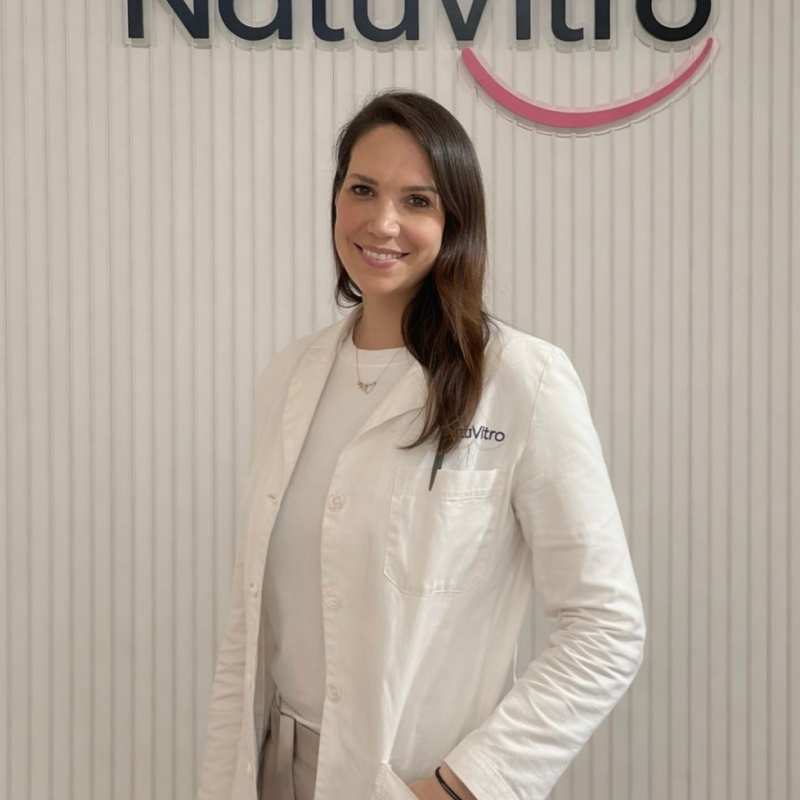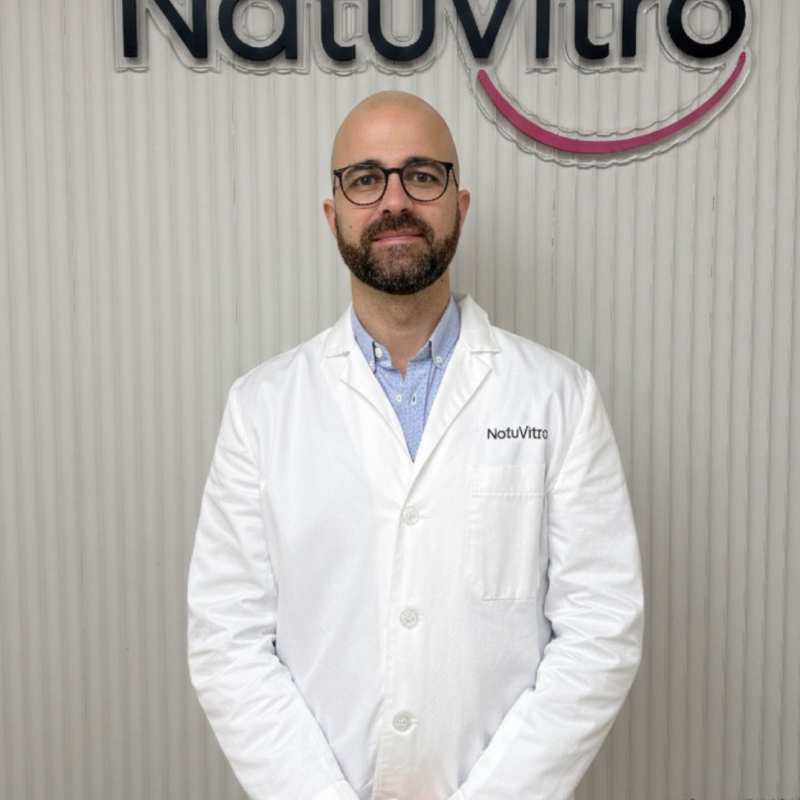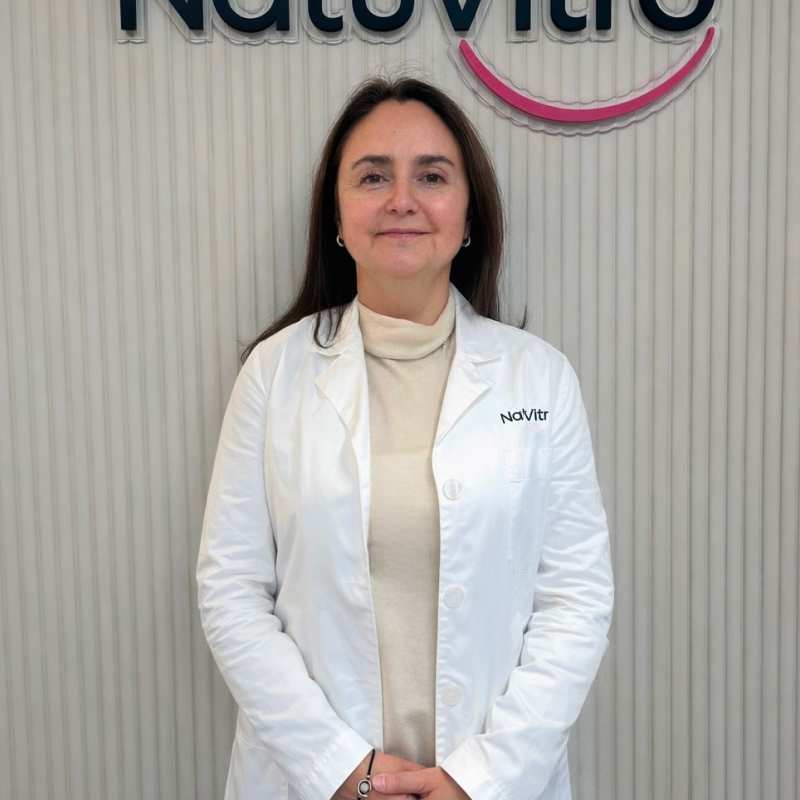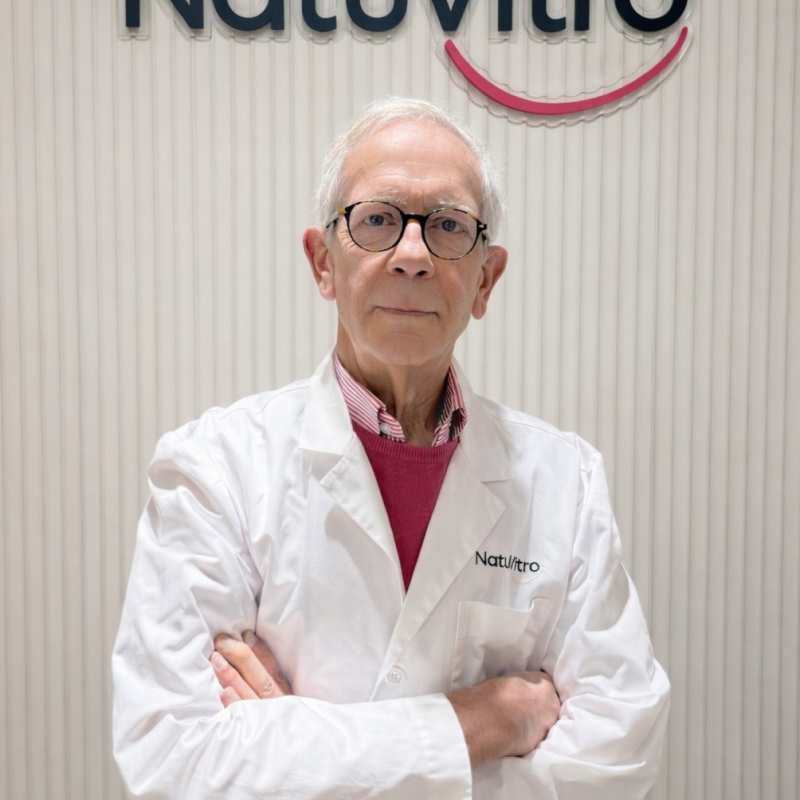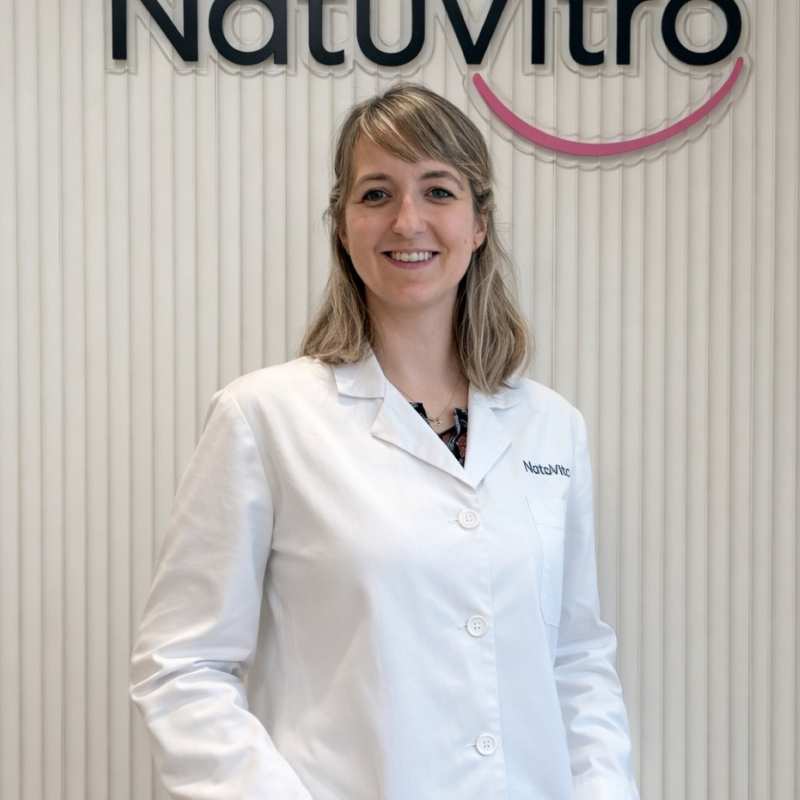
With the increasing prevalence of egg donation as a viable option for couples facing fertility challenges, the question arises: Is pregnancy by egg donation fundamentally different from a natural pregnancy? In exploring this query, it becomes evident that beyond the biological variances lie nuanced aspects that shape the entire pregnancy experience.
Pregnancy by egg donation involves the introduction of a third-party egg into the equation, a departure from the traditional conception method. This distinction prompts a closer examination of the physiological disparities that may arise during the course of gestation. From maternal age to health considerations, each factor contributes to a unique gestational landscape. Understanding these physiological nuances is crucial for prospective parents, as it sets the stage for a distinctive pregnancy journey.
As we delve into the intricacies of pregnancy by egg donation, it becomes apparent that the journey is not solely defined by physical distinctions. The emotional and psychological dimensions of this path carve a narrative of their own, weaving a tapestry that reflects the emotional resilience, joys, and potential challenges unique to those opting for egg donation. In the paragraphs that follow, we will navigate the uncharted territories of this distinctive pregnancy experience, unraveling the threads that distinguish it from its natural counterpart.
Physiological Differences:
The physiological distinctions between pregnancy by egg donation and natural conception extend beyond the genetic realm, encompassing aspects such as the hormone medication the recipient takes before embryo transfer. Unlike natural conception, where hormonal fluctuations follow the woman's natural cycle, recipients of donor eggs typically undergo a carefully orchestrated hormonal regimen. This regimen involves preparing the uterus to receive the embryo, ensuring optimal conditions for implantation.
A notable consideration surrounds the potential physical sensations experienced by the recipient. Given that the embryo doesn't carry the recipient's genetic code, some may wonder if their body will feel different during pregnancy. While the fundamental biological processes remain the same, the absence of a shared genetic connection may prompt a unique awareness of the physiological changes, fostering a distinct but equally meaningful connection between the recipient and the growing life within.
Concerns about pain or bleeding due to the immune system's response to the foreign genetic makeup of the embryo often arise. However, advancements in reproductive medicine, including meticulous matching processes and immunosuppressive treatments, have significantly reduced the likelihood of such complications. The focus is on creating an environment conducive to a healthy pregnancy, mitigating potential discomfort associated with immune responses.
Addressing the concern of miscarriage, studies indicate that pregnancies resulting from egg donation does not inherently carry a higher risk. The key lies in the thorough screening processes undertaken during egg donation, ensuring that the selected embryos are of optimal quality. While any pregnancy carries inherent uncertainties, the meticulous nature of egg donation procedures works towards minimizing potential risks.
Emotional and Psychological Aspects:
As the recipient, a poignant question may arise: How will the absence of a genetic link between you and the embryo impact your emotional connection to the pregnancy?
The emotional journey begins with the realization that the genetic makeup of the embryo doesn't mirror your own. This awareness can prompt a spectrum of emotions, from curiosity to a profound sense of acceptance. Prospective parents often find solace in recognizing that while the genetic code may differ, the shared experiences of carrying and nurturing the developing life foster a connection that transcends the biological.
The notion of genetic non-relatedness can prompt introspection about what defines parenthood. Embracing the idea that parenthood extends beyond genetic ties becomes a central theme. Couples often find strength in understanding that love, care, and the day-to-day experiences of parenting contribute significantly to the unique bond formed with their child.
Open communication within the family is a cornerstone of addressing these emotional dimensions. Sharing feelings, concerns, and expectations with partners and healthcare professionals creates a supportive environment. This collaborative approach helps cultivate resilience, ensuring that the emotional landscape is navigated with understanding and empathy.
As we explore the emotional nuances of pregnancy by egg donation, the narrative unfolds into a tapestry woven with unique threads of connection and love. In the subsequent sections, we will further illuminate societal and ethical considerations, shedding light on the broader aspects that shape the experience of building a family through this distinctive journey.
Social and Ethical Considerations:
Central to these considerations is the question of disclosure—whether and how to communicate the method of conception to the child and extended family.
The decision to disclose the use of egg donation involves navigating a delicate balance between transparency and the potential impact on family dynamics. While some parents choose openness from the outset, fostering an environment of honesty, others may grapple with the timing and manner of broaching the subject. These considerations underscore the importance of proactive discussions and shared decision-making within the family unit.
Ethical considerations also come to the forefront, encompassing broader societal attitudes toward assisted reproductive technologies. Families who opt for egg donation may find themselves addressing questions from curious friends, relatives, or even acquaintances. Navigating these conversations requires a blend of resilience and education, as individuals share their experiences and contribute to a broader understanding of diverse paths to parenthood.
Beyond the immediate social circle, societal perceptions of egg donation continue to evolve. As reproductive technologies advance, embracing the diversity of family-building methods becomes a crucial step in fostering a more inclusive and understanding society. The ethical considerations surrounding privacy, consent, and the rights of all parties involved underscore the need for ongoing dialogue and advocacy within the broader community.
Disclosing the use of egg donation to family and friends is a personal decision that involves careful consideration and communication. Here are some tips to navigate this conversation:
Choose the Right Timing:
- Timing is crucial when sharing sensitive information. Select a time when everyone involved is relaxed and can engage in an open and unhurried conversation.
Educate Yourself First:
- Before broaching the subject, ensure you are well-informed about the egg donation process. Having a clear understanding will empower you to answer questions and address concerns more confidently.
Communicate as a Couple:
- If applicable, share the information as a couple. Presenting a united front demonstrates solidarity and reinforces the idea that this is a decision made together.
Express Your Feelings:
- Be open about your emotions and feelings regarding the decision to use egg donation. Sharing your perspective allows others to empathize and understand your journey better.
Provide Educational Resources:
- Offer educational materials or resources about egg donation to help your family and friends comprehend the process better. This can include brochures, articles, or reputable websites.
Encourage Questions:
- Create a safe space for questions. Let your loved ones know that you are open to discussing the process and that their curiosity is welcomed. This fosters understanding and helps dispel any misconceptions.
Address Potential Concerns:
- Anticipate potential concerns or misconceptions and address them proactively. Whether it's clarifying the role of the egg donor or explaining the screening process, providing detailed information can alleviate worries.
Emphasize the Shared Joy:
- Emphasize the joy of building a family. Communicate the love and excitement you feel about welcoming a new addition to your family, underscoring that the method of conception doesn't diminish the joyous occasion.
Offer Support for Their Emotions:
- Understand that your family and friends may have a range of emotions in response to the news. Be prepared to offer support and reassurance, acknowledging that their feelings are valid.
Seek Professional Guidance:
- If you anticipate challenges or if the topic is particularly sensitive, consider seeking guidance from a therapist or counselor experienced in reproductive issues. Professional support can provide additional strategies for effective communication.
Remember that each family dynamic is unique, and there is no one-size-fits-all approach. Tailor these tips to align with your values and the specific needs of your family and friends. The goal is to create an environment of understanding, support, and celebration as you share the journey of expanding your family through egg donation.
As we explored the various facets of this distinctive path to parenthood, it becomes evident that while differences exist, they contribute to the rich mosaic of diverse family stories. The essence of parenthood transcends genetic connections, embracing the shared moments, love, and experiences that define the profound bond between parents and their children.
As families navigate the complexities of disclosing the use of egg donation, it is crucial to approach these conversations with honesty, empathy, and a commitment to fostering understanding. Each disclosure is a step toward creating a more informed and inclusive dialogue surrounding assisted reproductive technologies.
If you are starting on the journey of assisted reproductive technologies or seeking guidance on family-building options, NatuVitro stands as a beacon of expertise and compassionate care. Our team of experts is dedicated to guiding you through every step of the process, ensuring that your path to parenthood is supported by cutting-edge technologies and personalized attention.
At NatuVitro, we understand that each family's story is unique, and we are here to provide the knowledge and support you need. Schedule a consultation with us today and let us be your partners in shaping the beautiful chapters of your family's story. Your journey begins with NatuVitro, where excellence meets empathy.
Our experts are ready to examine your case history, clarify your choices, and address every question you have.
Don't wait to make informed decisions – your personalized guidance awaits!
- Spain (España)+34
- France (La France)+33
- Italy (Italia)+39
- United Kingdom+44
- United States+1
- Belgium (België)+32
- Switzerland (Schweiz/Suisse)+41
- Germany (Deutschland)+49
- Netherlands (Nederland)+31
- Afghanistan (افغانستان)+93
- Albania (Shqipëri)+355
- Algeria (الجزائر)+213
- American Samoa+1
- Andorra+376
- Angola+244
- Anguilla+1
- Antigua and Barbuda+1
- Argentina+54
- Armenia (Հայաստան)+374
- Aruba+297
- Ascension Island+247
- Australia+61
- Austria (Österreich)+43
- Azerbaijan (Azərbaycan)+994
- Bahamas+1
- Bahrain (البحرين)+973
- Bangladesh (বাংলাদেশ)+880
- Barbados+1
- Belarus (Беларусь)+375
- Belize+501
- Benin (Bénin)+229
- Bermuda+1
- Bhutan (འབྲུག)+975
- Bolivia+591
- Bosnia and Herzegovina (Босна и Херцеговина)+387
- Botswana+267
- Brazil (Brasil)+55
- British Indian Ocean Territory+246
- British Virgin Islands+1
- Brunei+673
- Bulgaria (България)+359
- Burkina Faso+226
- Burundi (Uburundi)+257
- Cambodia (កម្ពុជា)+855
- Cameroon (Cameroun)+237
- Canada+1
- Cape Verde (Kabu Verdi)+238
- Caribbean Netherlands+599
- Cayman Islands+1
- Central African Republic (République centrafricaine)+236
- Chad (Tchad)+235
- Chile+56
- China (中国)+86
- Christmas Island+61
- Cocos (Keeling) Islands+61
- Colombia+57
- Comoros (جزر القمر)+269
- Congo (DRC) (Jamhuri ya Kidemokrasia ya Kongo)+243
- Congo (Republic) (Congo-Brazzaville)+242
- Cook Islands+682
- Costa Rica+506
- Côte d’Ivoire+225
- Croatia (Hrvatska)+385
- Cuba+53
- Curaçao+599
- Cyprus (Κύπρος)+357
- Czech Republic (Česká republika)+420
- Denmark (Danmark)+45
- Djibouti+253
- Dominica+1
- Dominican Republic (República Dominicana)+1
- Ecuador+593
- Egypt (مصر)+20
- El Salvador+503
- Equatorial Guinea (Guinea Ecuatorial)+240
- Eritrea+291
- Estonia (Eesti)+372
- Eswatini+268
- Ethiopia+251
- Falkland Islands (Islas Malvinas)+500
- Faroe Islands (Føroyar)+298
- Fiji+679
- Finland (Suomi)+358
- French Guiana (Guyane française)+594
- French Polynesia (Polynésie française)+689
- Gabon+241
- Gambia+220
- Georgia (საქართველო)+995
- Ghana (Gaana)+233
- Gibraltar+350
- Greece (Ελλάδα)+30
- Greenland (Kalaallit Nunaat)+299
- Grenada+1
- Guadeloupe+590
- Guam+1
- Guatemala+502
- Guernsey+44
- Guinea (Guinée)+224
- Guinea-Bissau (Guiné Bissau)+245
- Guyana+592
- Haiti+509
- Honduras+504
- Hong Kong (香港)+852
- Hungary (Magyarország)+36
- Iceland (Ísland)+354
- India (भारत)+91
- Indonesia+62
- Iran (ایران)+98
- Iraq (العراق)+964
- Ireland+353
- Isle of Man+44
- Israel (ישראל)+972
- Italy (Italia)+39
- Jamaica+1
- Japan (日本)+81
- Jersey+44
- Jordan (الأردن)+962
- Kazakhstan (Казахстан)+7
- Kenya+254
- Kiribati+686
- Kosovo+383
- Kuwait (الكويت)+965
- Kyrgyzstan (Кыргызстан)+996
- Laos (ລາວ)+856
- Latvia (Latvija)+371
- Lebanon (لبنان)+961
- Lesotho+266
- Liberia+231
- Libya (ليبيا)+218
- Liechtenstein+423
- Lithuania (Lietuva)+370
- Luxembourg+352
- Macau (澳門)+853
- North Macedonia (Македонија)+389
- Madagascar (Madagasikara)+261
- Malawi+265
- Malaysia+60
- Maldives+960
- Mali+223
- Malta+356
- Marshall Islands+692
- Martinique+596
- Mauritania (موريتانيا)+222
- Mauritius (Moris)+230
- Mayotte+262
- Mexico (México)+52
- Micronesia+691
- Moldova (Republica Moldova)+373
- Monaco+377
- Mongolia (Монгол)+976
- Montenegro (Crna Gora)+382
- Montserrat+1
- Morocco (المغرب)+212
- Mozambique (Moçambique)+258
- Myanmar (Burma) (မြန်မာ)+95
- Namibia (Namibië)+264
- Nauru+674
- Nepal (नेपाल)+977
- New Caledonia (Nouvelle-Calédonie)+687
- New Zealand+64
- Nicaragua+505
- Niger (Nijar)+227
- Nigeria+234
- Niue+683
- Norfolk Island+672
- North Korea (조선 민주주의 인민 공화국)+850
- Northern Mariana Islands+1
- Norway (Norge)+47
- Oman (عُمان)+968
- Pakistan (پاکستان)+92
- Palau+680
- Palestine (فلسطين)+970
- Panama (Panamá)+507
- Papua New Guinea+675
- Paraguay+595
- Peru (Perú)+51
- Philippines+63
- Poland (Polska)+48
- Portugal+351
- Puerto Rico+1
- Qatar (قطر)+974
- Réunion (La Réunion)+262
- Romania (România)+40
- Russia (Россия)+7
- Rwanda+250
- Saint Barthélemy+590
- Saint Helena+290
- Saint Kitts and Nevis+1
- Saint Lucia+1
- Saint Martin (Saint-Martin (partie française))+590
- Saint Pierre and Miquelon (Saint-Pierre-et-Miquelon)+508
- Saint Vincent and the Grenadines+1
- Samoa+685
- San Marino+378
- São Tomé and Príncipe (São Tomé e Príncipe)+239
- Saudi Arabia (المملكة العربية السعودية)+966
- Senegal (Sénégal)+221
- Serbia (Србија)+381
- Seychelles+248
- Sierra Leone+232
- Singapore+65
- Sint Maarten+1
- Slovakia (Slovensko)+421
- Slovenia (Slovenija)+386
- Solomon Islands+677
- Somalia (Soomaaliya)+252
- South Africa+27
- South Korea (대한민국)+82
- South Sudan (جنوب السودان)+211
- Spain (España)+34
- Sri Lanka (ශ්රී ලංකාව)+94
- Sudan (السودان)+249
- Suriname+597
- Svalbard and Jan Mayen+47
- Sweden (Sverige)+46
- Syria (سوريا)+963
- Taiwan (台灣)+886
- Tajikistan+992
- Tanzania+255
- Thailand (ไทย)+66
- Timor-Leste+670
- Togo+228
- Tokelau+690
- Tonga+676
- Trinidad and Tobago+1
- Tunisia (تونس)+216
- Turkey (Türkiye)+90
- Turkmenistan+993
- Turks and Caicos Islands+1
- Tuvalu+688
- U.S. Virgin Islands+1
- Uganda+256
- Ukraine (Україна)+380
- United Arab Emirates (الإمارات العربية المتحدة)+971
- Uruguay+598
- Uzbekistan (Oʻzbekiston)+998
- Vanuatu+678
- Vatican City (Città del Vaticano)+39
- Venezuela+58
- Vietnam (Việt Nam)+84
- Wallis and Futuna (Wallis-et-Futuna)+681
- Western Sahara (الصحراء الغربية)+212
- Yemen (اليمن)+967
- Zambia+260
- Zimbabwe+263
- Åland Islands+358
Visit our clinic
Location
Call us now
Leave a message
